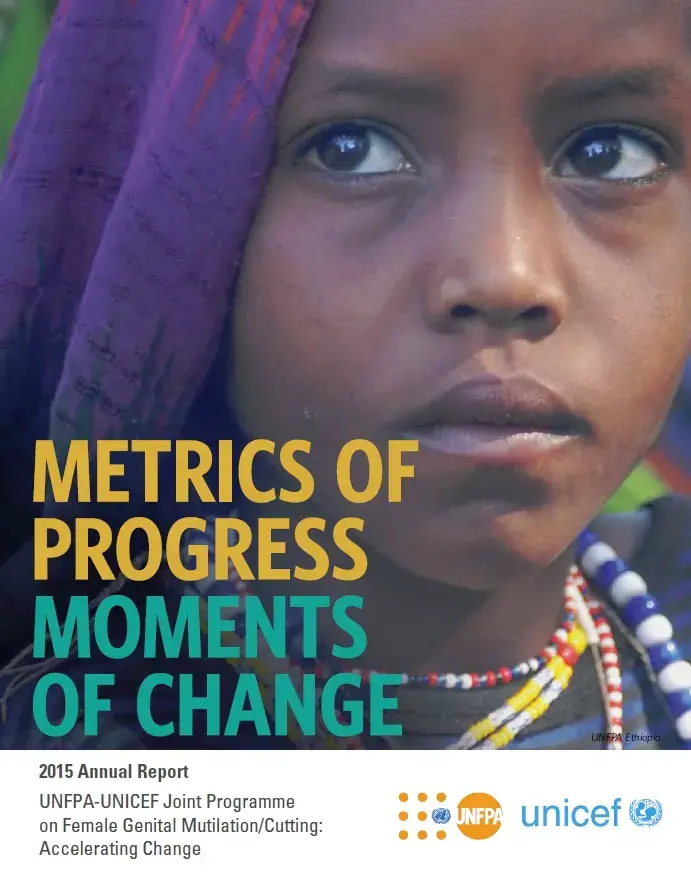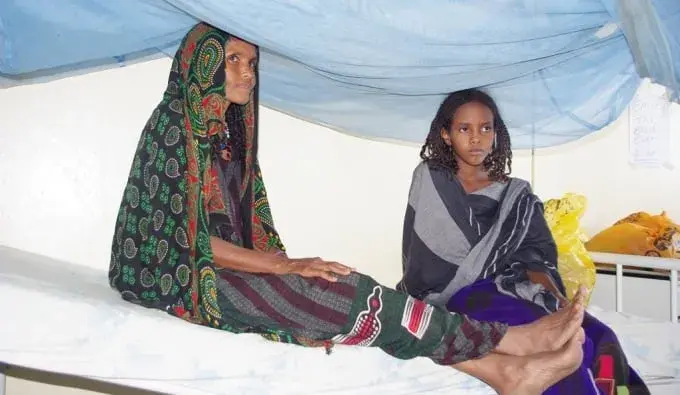The UNFPA-UNICEF Joint Programme on Female Genital Mutilation/Cutting: Accelerating Change started in 2008 and has just completed the first half of its Phase II implementation period (2014–17). The programme seeks to contribute to the overall goal as set by the Interagency Statement on Eliminating Female Genital Mutilation/Cutting1 and reaffirmed by the 2012 United Nations General Assembly Resolution A/RES/67/1462 to support governments, communities, and the girls and women concerned towards the abandonment of Female Genital Mutilation/Cutting.
This annual report highlights results achieved in 2015 across the three outcome areas of the programme, including:
• Policy reform: Two additional countries—the Gambia and Nigeria—adopted national legislation criminalizing FGM/C, bringing the total to 13. Other countries made progress in terms of ownership and enforcement of existing laws, or advocating for new ones.
• FGM/C-related services: 531,300 girls and women received FGM/C-related prevention, protection or care services, which corresponds to nearly twice as the 2014 figure.
• Galvanizing social dynamics: Close to 2,000 communities, representing close to 5 million people, made public commitments to abandon FGM/C, a significant increase from 2014.




